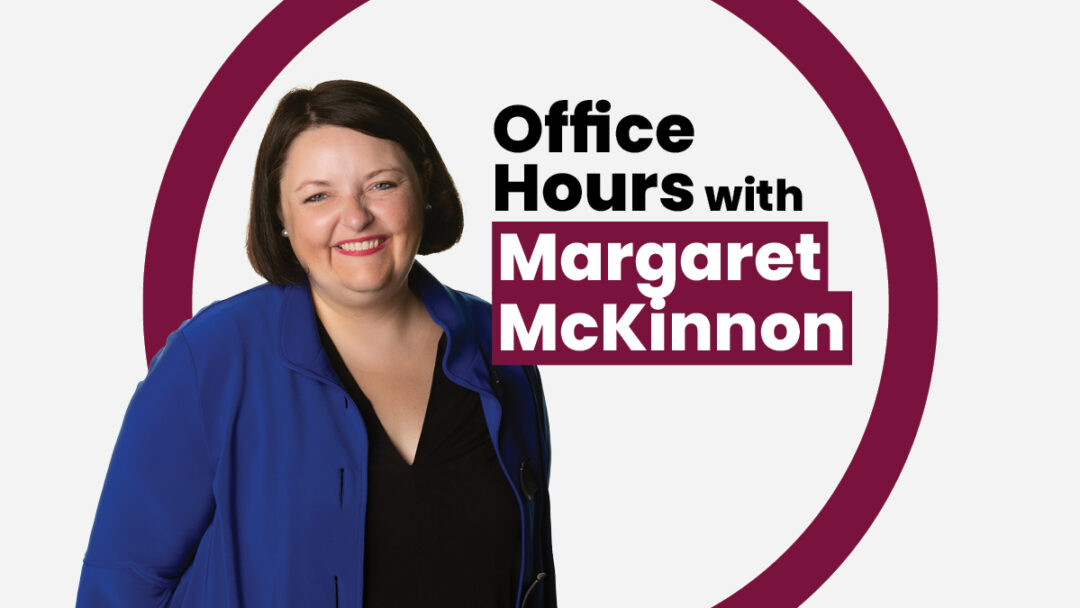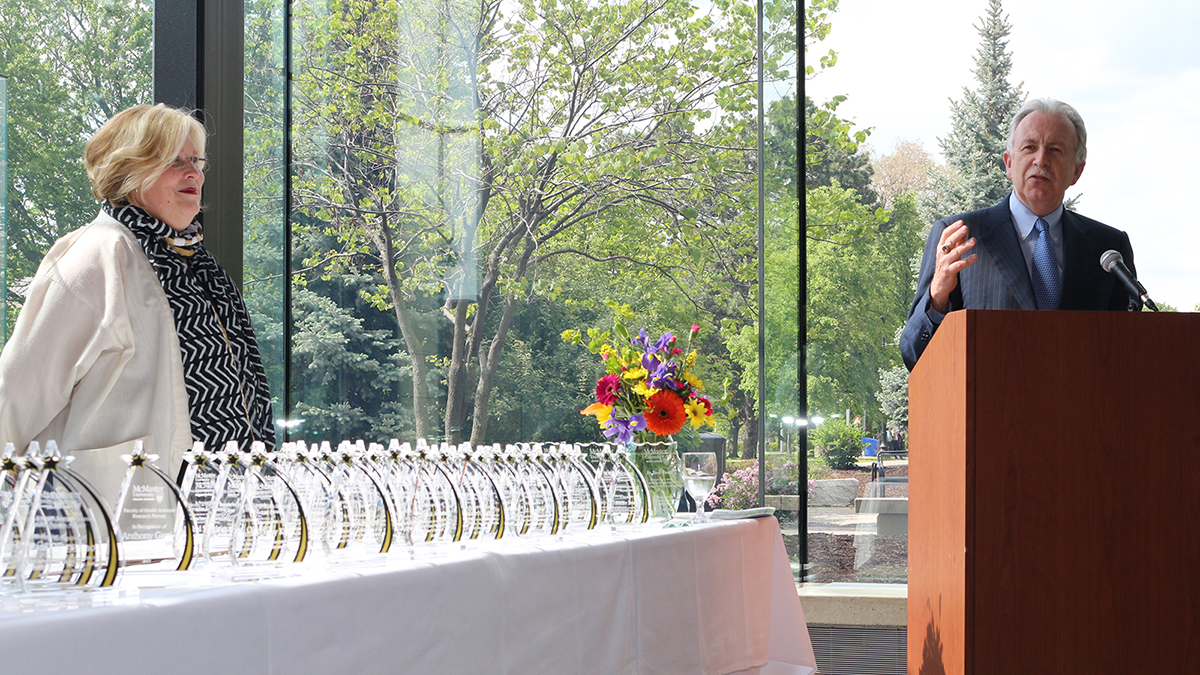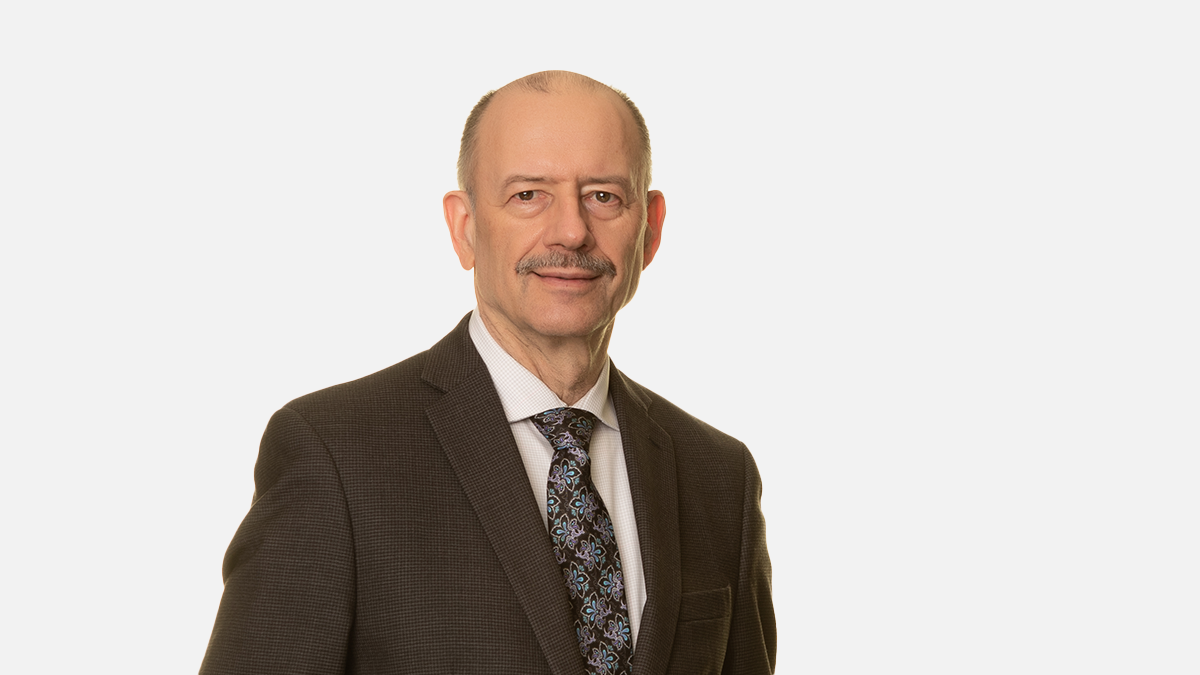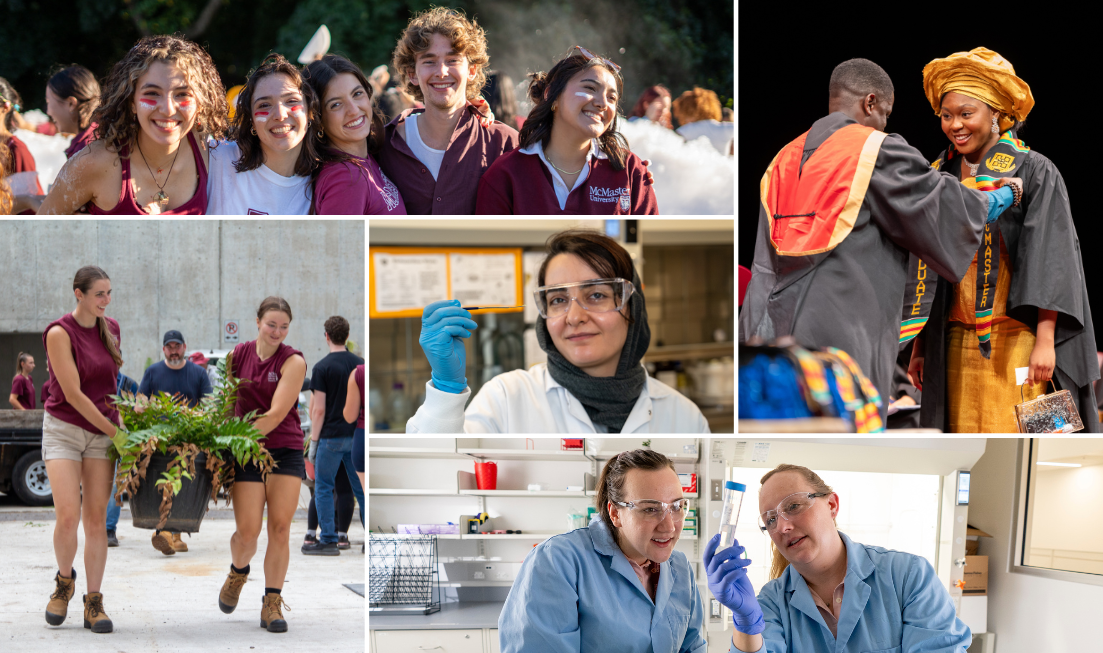Office Hours with Margaret McKinnon

Almost 25 years ago, Margaret McKinnon survived one of the most terrifying modern-day experiences. Newly married and set to enjoy her honeymoon in Portugal, thousands of feet above the Atlantic ocean, her flight – just two hours away from its destination – ran out of fuel. Then the engine failed.
For the next 30 minutes, McKinnon, then a PhD student studying memory and now a professor in McMaster University’s Department of Psychiatry and Behavioural Neurosciences, sat in terror. She contemplated her life and its inevitable fate as nearby passengers prayed and cried. The oxygen masks dropped. She put on a life jacket and was told to brace for impact.
Then, miraculously, the pilot successfully glided the plane into an emergency landing on a nearby island airstrip. McKinnon, her husband, the passengers and airline crew had escaped the tragedy they spent 30 minutes preparing themselves for.
That harrowing experience changed the trajectory of McKinnon’s career, setting off a sequence of events that helped her establish herself as a foremost leader in what we know about trauma and posttraumatic stress.
Making lemons out of lemonade
Within weeks of the flight, McKinnon mobilized on an idea: the passengers should be studied for their memory of the event and their experience with posttraumatic stress. It took years, but McKinnon and lead investigator Brian Levine, a senior scientist at Baycrest’s Rotman Research Institute, found enough passengers who agreed to participate.
“That was a very uncontrollable event, and was incredibly difficult for me,” says McKinnon. “But at the same time, conducting the research was an opportunity to turn something highly uncontrollable and negative into something positive.”
The study was unprecedented – described by many as a lab experiment in real life – and McKinnon would be both a study author and pilot participant. The research published in 2014 in the journal Clinical Psychological Science, and showed that memory of the event was vivid among all participants, and those who developed post-traumatic stress disorder were found to recall more details that were external to the flight, not just the traumatic event itself.
“I would never want to relive what happened, but I don’t regret that it happened because it’s really helped to make me who I am. I have greater empathy for the experiences of people who have had similar traumas, or developmental traumas, or long-term traumas. And it also has given me the opportunity to talk to others in a way that challenges stigma. I am very proud to be a clinical psychologist and also someone who’s able to talk about having had depression and PTSD as part of my history.”
Helping the helpers
Now as the lead of The Trauma and Recovery Lab and the Homewood Chair in Mental Health and Trauma, McKinnon focuses her research on addressing questions related to trauma, particularly among public safety personnel, such as military members, veterans and healthcare workers.
“What we aim to do is to thank people for their service through research and to rapidly translate our findings in ways that can provide direct assistance to them.”
McKinnon, who is the daughter of the former assistant deputy fire marshall of the Province of Ontario and a nurse, has a kinship to public service personnel and healthcare workers and says there is a price to be paid for caring for others.
“People who serve give generously for the benefit of all Canadians, and oftentimes they pay a tremendous price for that. And so do their families. Among them we see high rates of PTSD, depression, anxiety.”
McKinnon says working with this group is an opportunity to give back. Out of the research, she and her team develop new approaches to addressing PTSD and aim to bring people back to a level of function they had before their traumatic event.
“People are giving a gift when they participate in research and knowledge translation activities. Despite having faced trauma in the past, they’re giving a gift to the wider community.”
“We can’t imagine a group that we would want to work with more.”
Her first-hand experience as her superpower
McKinnon considers authenticity her greatest tool in earning the trust of her lab staff and research participants. It’s not common for a clinical expert to have first-hand experience with their medical area of expertise, but for that reason McKinnon has a deep appreciation for her research participants and sees the potential for hope.
“I’m very aware that people can experience symptoms of PTSD and depression and may not believe it’s possible for them to recover. But with good treatment it really is possible. There’s time when you’re experiencing a mental illness where it feels like it will never end. I think that’s something that’s common across many, many different mental health presentations. But I do have first-hand knowledge that it can end.”
McKinnon also knows that disclosing her own experience can help challenge the stigma that surrounds mental illness – especially in academia.
“There have been times I was told these disclosures would ruin my career, but I think in fact, the experiences that I have had made my career and shape my career.”
Faculty & Staff, Office HoursRelated News
News Listing

Faculty of Health Sciences 2024: The year in awards
#Shorts, Faculty & Staff, Feature
December 10, 2024

McMaster professor emeritus named recipient of Canadian Blood Services Lifetime Achievement Award
Faculty & Staff, Leadership
December 5, 2024

